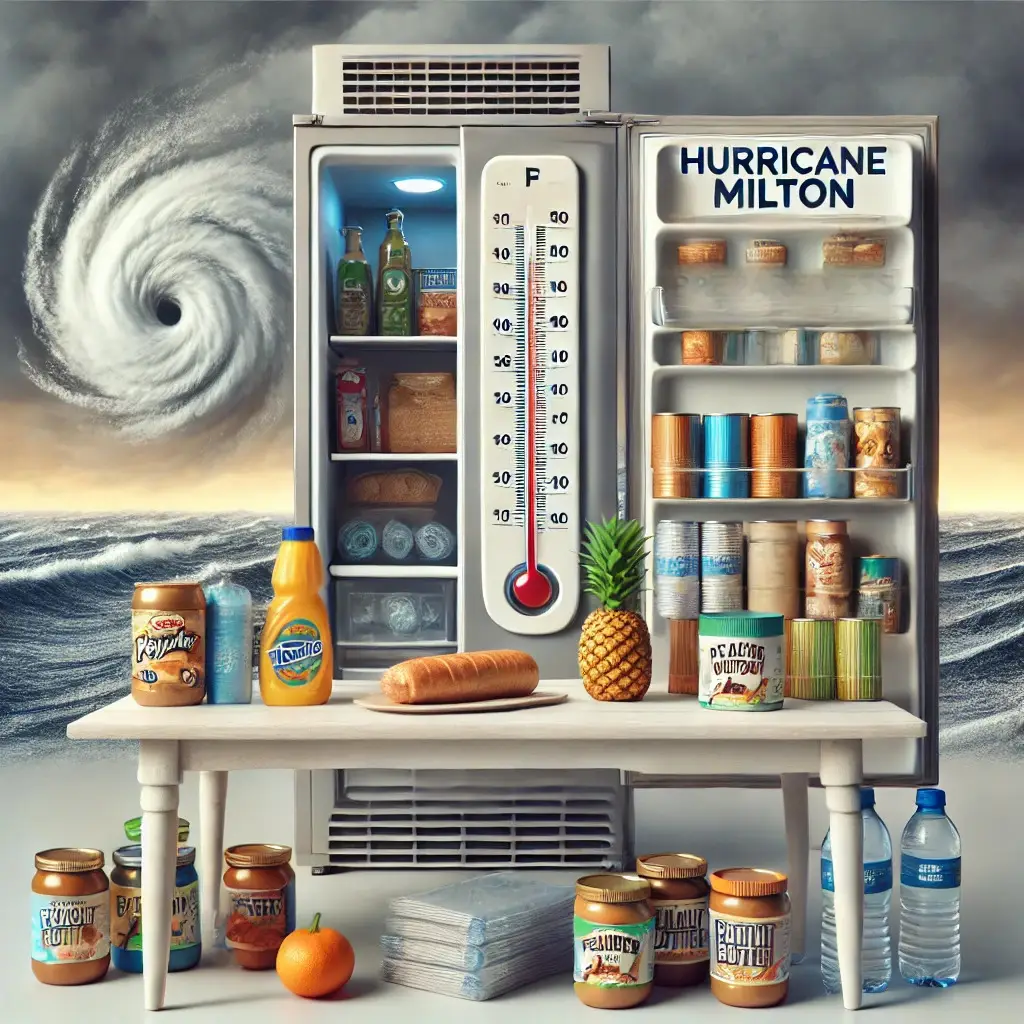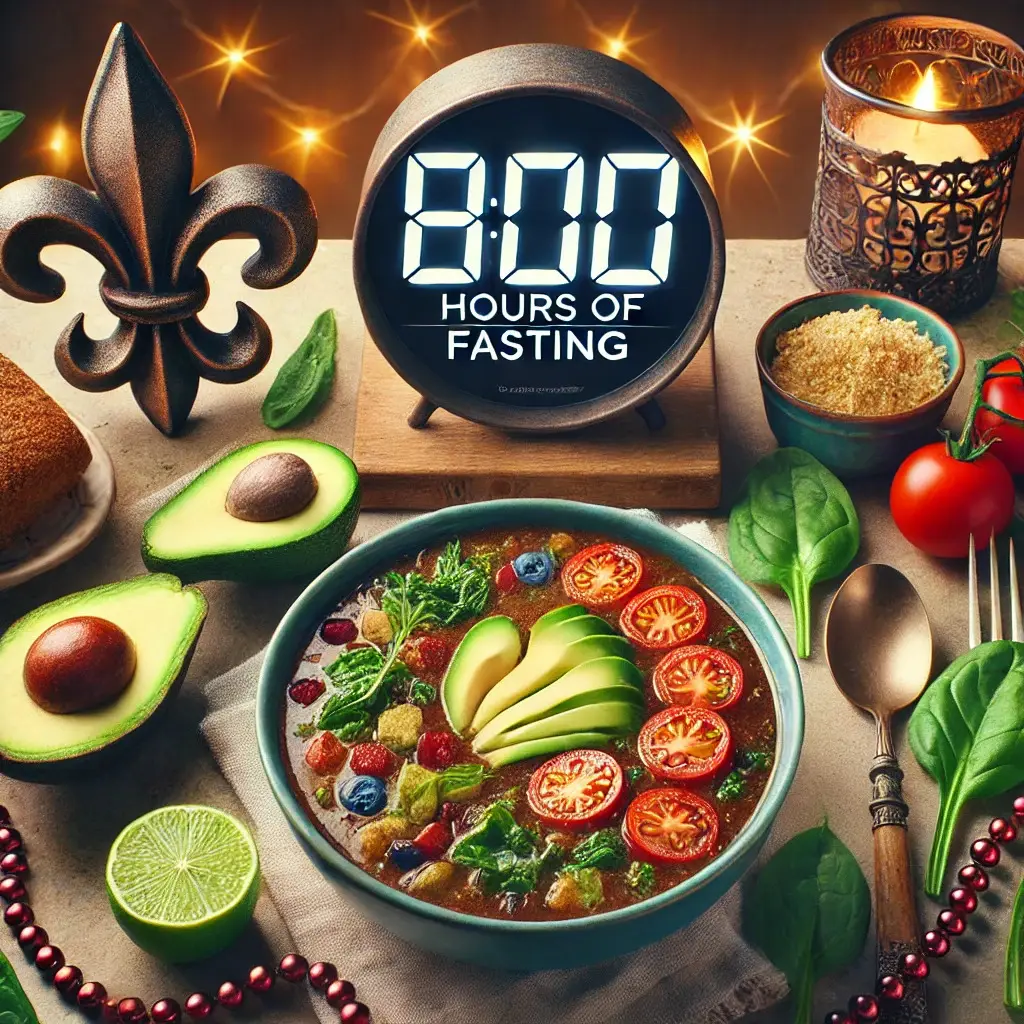When a hurricane is approaching, preparation is crucial—not only to protect your home but also to ensure your family’s food safety. Power outages, limited access to clean water, and delayed emergency assistance mean it’s essential to plan and store food safely to avoid foodborne illness. In this post, we’ll cover what foods to stock up on, how long they’ll last without power, and important safety tips to keep you and your family safe.
Why Food Safety Matters in a Hurricane
When a storm disrupts power, any food in your refrigerator can become a breeding ground for bacteria if it rises above 40°F for more than two hours. Without refrigeration, perishable foods like meat, dairy, and eggs can develop dangerous bacteria like Salmonella and E. coli, which can lead to severe gastrointestinal upset and, in extreme cases, life-threatening illnesses. Emergency personnel may be delayed in reaching you if roads are flooded or debris blocks access, so preventing foodborne illness is especially critical.
Food Safety Facts:
- Above 40°F, food becomes unsafe after two hours due to rapid bacterial growth.
- Prepared foods, fresh meats, and dairy products are among the highest risk items.
- Freezers can keep food safe for about 48 hours if full, or 24 hours if half full, as long as they remain unopened.
Essential Tips for Hurricane Food Safety
- Stock Up on Non-Perishables Choose shelf-stable foods that don’t require refrigeration or cooking. Stocking up on items that are nutritious and provide energy is key.Recommended Foods:
- Peanut butter and jelly (perfect for sandwiches)
- Canned tuna, salmon, or chicken
- Crackers and granola bars
- Dried fruits and nuts
- Shelf-stable milk or milk alternatives
- Canned fruits, vegetables, and beans (look for low-sodium options)
- Prepare Your Refrigerator and Freezer
- Set your refrigerator and freezer to the coldest settings in advance.
- Fill extra bottles or bags with water and freeze them. These can help keep the freezer colder for longer and provide drinking water once thawed.
- Store perishable items like meat, dairy, and eggs in one section of the fridge, ideally lower and toward the back, to stay cooler for longer.
- Limit Fridge and Freezer Access During Power Outages Opening the door allows cold air to escape, so only open the fridge when absolutely necessary.How long food lasts without power:
- Refrigerator: Food can stay safe for about four hours as long as the door remains closed.
- Freezer: A full freezer can keep food safe for 48 hours; a half-full freezer will last 24 hours.
- Separate Safe from Unsafe Food If your fridge has been without power for more than four hours, be ready to discard potentially unsafe items. You should check each food item and avoid tasting it to determine safety, as harmful bacteria may not affect taste or smell.Discard if the power has been out for over four hours:
- Meat, poultry, seafood
- Eggs and dairy products
- Leftover food, cooked meats, or previously opened condiments
- Store Water Safely Clean water may be unavailable, so it’s essential to have at least one gallon per person per day for a minimum of three days. Fill clean containers with water and store them in a cool, dark place. Remember, some foods like canned goods may require additional water for preparation.
Easy-to-Make Meals with No Cooking Required
Hurricanes make traditional cooking challenging, but there are still ways to prepare nutritious meals:
- Peanut Butter and Jelly Sandwiches – These are easy to prepare and packed with protein and carbs for sustained energy.
- Tuna Salad Wraps – Mix canned tuna with mustard or single-serve mayonnaise packets and wrap in tortillas.
- Crackers and Canned Soup – Opt for ready-to-eat canned soups that don’t need additional water or cooking.
- Granola and Dried Fruit Mix – A high-energy snack that provides essential vitamins and fiber.
Extra Preparedness Tips
- Invest in a Thermometer: A refrigerator thermometer will help you know when your fridge has reached unsafe temperatures. Aim to keep the refrigerator below 40°F and the freezer below 0°F.
- Label Foods: Before the storm, consider labeling perishable items in the freezer by the date they were stored. This helps you identify the oldest foods first when you’re assessing which items need to be used sooner.
- Have a Cooler on Hand: If power outages are prolonged, transferring some perishable items to a cooler with ice or frozen water bottles may extend their viability slightly.
By preparing early and following these essential food safety steps, you can keep your family safe from foodborne illness and ensure you have enough nutritious food and clean water to weather the storm. Hurricanes may be unpredictable, but with a bit of foresight, you can feel confident about your preparedness.
More resources:




